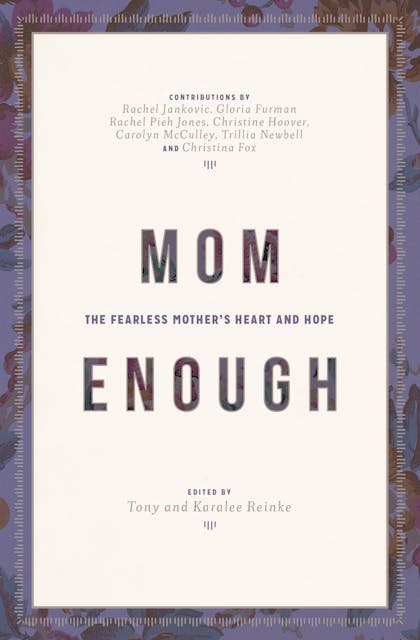The End of Mommy Wars
Every other week this spring, I opened my home to a group of new moms to discuss biblical motherhood. Each of them arrived with their babies and baby gear in tow, as well a palpable fear that they were getting it all wrong.
There is an inherent danger in gathering moms in a room: we immediately compare notes regarding our children’s milestones, personalities, and sleep habits. Really, though, we are comparing ourselves, wondering if we are good moms and if our children reflect that.
With the new moms, I addressed this tendency toward comparison on the first day. Until we stop comparing ourselves or telling other moms they should mother our way, I said, we will leave our time together feeling isolated and condemned.
The gospel of Christ holds no place for comparison. We are all equally in need of grace, and we all equally receive it as a gift from God. In regards to mothering, the gospel clearly applies:
- None of us are good enough mothers.
- Through Christ, God offers us grace in our mothering. He takes our meager efforts and produces spiritual fruit in us and our children. He is enough.
- He has given us principles in Scripture as a framework for mothering.
- He has also given us the Holy Spirit to individually lead and guide us in mothering our unique children.
What does this mean in day-in, day-out motherhood?
It means that we are all mothering toward the same goal — that our children know and worship God. Our methods for reaching that goal may vary according to our unique families, circumstances, and the leadership of the Holy Spirit. Will he lead every believer toward the same goal? Yes. Will he lead every believer to the goal in the same way? No. And this is a very good thing.
Nancy Wilson writes,
Because every family is a distinct cultural unit, it is good that our methods differ. God did not intend for us to walk in lockstep with one another. . . . We ought to rejoice in a common commitment to biblical principles and in the variety of methods God’s people employ. (The Fruit of Her Hands, 58)
Because of the gospel, then, the Mommy Wars have no place among believers. After all, at the heart of the Mommy Wars is pride (“I am more spiritual than that mother because I employ this method and she does not.”), competition (“My children are better than hers because I employ this method.”), and self-condemnation (“I am not spiritual enough or a good enough mother because I don’t employ the method that she does.”).
To end the Mommy Wars in the church, we must learn to apply the gospel to our own mothering, and also to the mothering methods of others. When we know God’s grace, we stop looking for validation from others for our methods, and we are able to extend grace to others. We celebrate and respect the different gifts and styles of mothering as we move toward a common goal.
These are all the things I said to the new moms in my living room. I pleaded with them earnestly to remember grace, to turn off the chorus of (good) voices on the internet and (good) books on their shelves, and to listen for and focus on the only voice that matters, the quiet whisper of the Holy Spirit in the pages of Scripture.

Mom Enough: The Fearless Mother’s Heart and Hope is a short book that explores the daily trials and worries of motherhood from the perspectives of eight women. In the trenches, they have learned (and continue to learn) how to treasure God and depend on his all-sufficient grace.
The paradox of this book is the secret power of godly mothering. Becoming mom enough comes from answering the question, “Are you mom enough?” with a firm “No. But God is God enough.”




